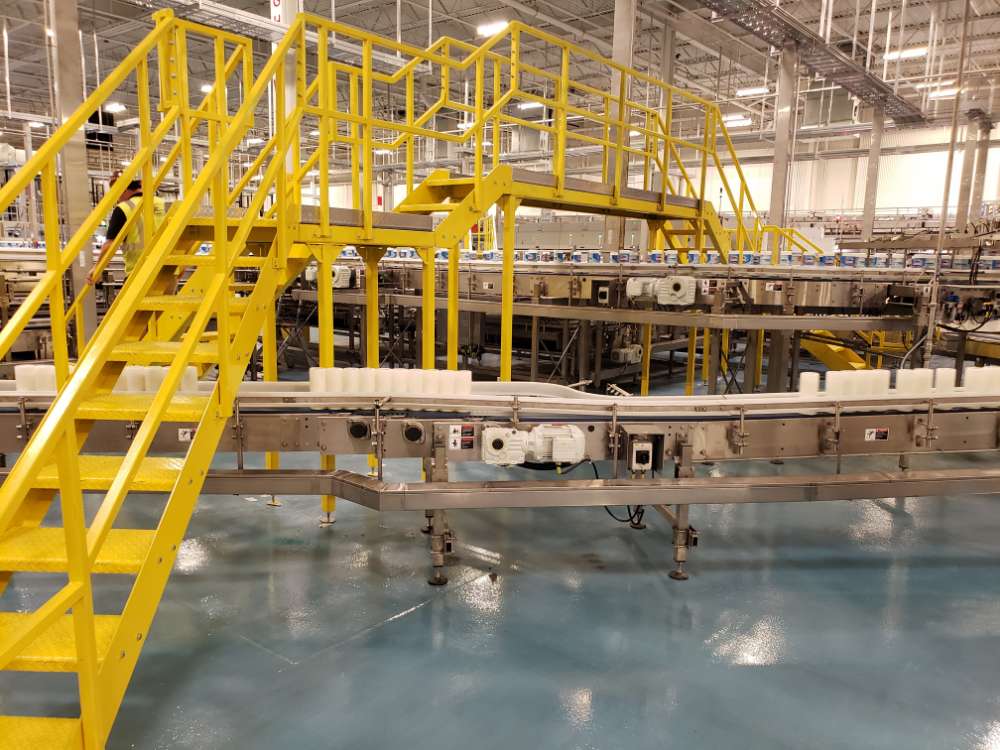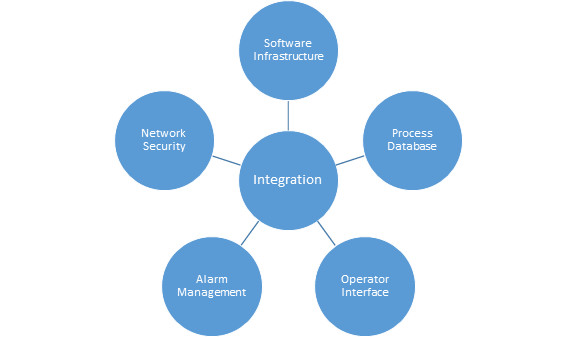The Role Of Industrial System Integrators in Automation

Introduction
In today’s rapidly evolving industrial landscape, automation plays a crucial role in enhancing efficiency and productivity. At the heart of this transformation are Industrial System Integrators. But what exactly is an industrial system integrator, and why are they so vital for automation? Let’s delve into this fascinating topic.
What is an Industrial System Integrator?
Furthermore, an industrial system integrator plays a crucial role in optimizing efficiency and productivity. In addition, through careful planning and implementation, they can minimize downtime and reduce costs. Moreover, by coordinating different elements effectively, an industrial system integrator can improve overall system reliability. Overall, their expertise is essential in ensuring that all components work together smoothly and efficiently in an industrial setting.
Key Responsibilities
Industrial system integrators are responsible for designing, implementing, and maintaining integrated systems. Their tasks include selecting the right technologies, ensuring compatibility between different components, and optimizing the system for maximum efficiency.
History of Industrial System Integrators
However, as technology advanced, new methods were developed to streamline processes and improve efficiency. Additionally, with the rise of digitalization, the integration of more complex systems became increasingly common.
Additionally, as a result, these advancements have led to more efficient and streamlined processes. Ultimately, this has revolutionized the way businesses operate and interact with their systems.


Types of Industrial System Integration
Horizontal Integration:- Horizontal integration involves linking various processes at the same level of production. This type of integration focuses on improving workflow and information exchange between similar units.
Vertical Integration:- Vertical integration connects different levels of production, from raw materials to finished products. This approach ensures that all stages of production are synchronized and operate efficiently.
End-to-End Integration:- End-to-end integration encompasses the entire production process, from supply chain management to customer delivery. This comprehensive approach aims to optimize every aspect of production and distribution.
Benefits of Industrial System Integrators
Increased Efficiency:- By integrating various subsystems, industrial processes become more streamlined, reducing downtime and increasing productivity. Automation ensures that tasks are performed consistently and accurately, minimizing human error.
Cost Savings:- Although the initial investment in system integration can be high, the long-term cost savings are substantial. Integrated systems reduce operational costs by optimizing resource usage and enhancing process efficiency.
Improved Data Management:-Integration enables better data collection and analysis. This data-driven approach allows for more informed decision-making, leading to improved operational outcomes.
Key Technologies Utilized by Industrial System Integrators
Internet of Things (IoT):- IoT devices are pivotal in industrial system integration, providing real-time data and enabling remote monitoring and control. These smart devices enhance connectivity and facilitate seamless communication between various components.
Cloud Computing:- Cloud computing offers scalable and flexible solutions for data storage and processing. It allows for centralized data management, making it easier to integrate and analyze data from different sources.
Artificial Intelligence (AI):- AI technologies enhance system integration by enabling predictive maintenance, real-time decision-making, and process optimization. AI algorithms can analyze vast amounts of data, providing valuable insights and improving system performance.
Big Data Analytics:- Big data analytics helps in processing and analyzing large datasets, identifying patterns, and predicting trends. This technology is crucial for making informed decisions and optimizing industrial processes.
Challenges Faced by Industrial System Integrators
Technical Barriers:- Implementing system integration requires advanced technical knowledge and expertise. Integrating different systems and technologies can be complex and challenging.
Cybersecurity Risks:- With increased connectivity comes the risk of cyber threats. Ensuring robust cybersecurity measures is essential to protect integrated systems from potential attacks.
High Initial Costs:- The initial investment for integrating industrial systems can be substantial. However, the long-term benefits often outweigh the upfront costs.
Case Studies of Successful Industrial System Integration
Example 1: Automotive Industry
In the automotive industry, system integration has revolutionized manufacturing processes. Automated assembly lines and integrated supply chains have significantly improved efficiency and reduced production costs.
Example 2: Manufacturing Sector
The manufacturing sector has seen remarkable improvements with the adoption of system integration. Enhanced process control and real-time monitoring have led to higher quality products and faster production times.
Future Trends in Industrial System Integration
Increased Use of AI and Machine Learning
AI and machine learning are set to play a bigger role in system integration. These technologies will enable more sophisticated automation and predictive maintenance, further enhancing efficiency.
Expansion of IoT Applications
The use of IoT devices will continue to expand, providing more data and improving connectivity. This trend will lead to smarter and more responsive industrial systems.
Greater Emphasis on Cybersecurity
As integration becomes more widespread, the focus on cybersecurity will intensify. Developing robust security protocols will be crucial to protect integrated systems from cyber threats.

Impact on Workforce
Job Transformation :- While automation may reduce the need for certain manual tasks, it also creates new opportunities for skilled workers. The demand for technicians and engineers with expertise in system integration will rise.
Need for New Skills:- As technology evolves, so will the skill requirements. Workers will need to adapt and acquire new skills to keep up with advancements in system integration and automation.
Impact on Employment Levels:- The impact on employment levels will vary. While some jobs may be lost to automation, others will be created, particularly in fields related to technology and system maintenance.
Regulatory and Compliance Issues
Industry Standards:- Adhering to industry standards is essential for successful system integration. These standards ensure compatibility and interoperability between different systems and technologies.
Compliance Requirements:- Meeting regulatory and compliance requirements is crucial for integrated systems. Companies must ensure that their systems adhere to legal and industry-specific regulations.
Role of Government Policies:- Government policies can significantly influence the adoption and implementation of system integration. Supportive policies and incentives can drive innovation and encourage companies to invest in integration technologies.
Role of System Integrators in Industry 4.0
What is Industry 4.0?
Industry 4.0 refers to the fourth industrial revolution characterized by the fusion of digital, physical, and biological worlds through advanced technologies. It encompasses IoT, AI, robotics, and more.
Importance of Integrators in the Digital Transformation
System integrators are crucial in implementing Industry 4.0 technologies. They ensure that various advanced systems and technologies work together seamlessly, driving the digital transformation of industries.
Steps to Implement Industrial System Integration
Assessment and Planning:- The first step in implementing system integration is to assess the existing systems and plan the integration process. This involves identifying the requirements and setting clear objectives.
Choosing the Right Technologies:- Selecting the appropriate technologies is crucial for successful integration. Companies must choose solutions that are compatible and meet their specific needs.
Implementation and Testing:- Once the technologies are chosen, the next step is to implement and test the integrated system. This involves installing hardware, configuring software, and conducting thorough testing to ensure everything works as intended.
Monitoring and Maintenance:- After implementation, continuous monitoring and maintenance are essential to keep the system running smoothly. Regular updates and maintenance activities help prevent issues and ensure optimal performance.
Tools and Software for Industrial System Integration
Popular Tools:- Several tools are available for system integration, including programmable logic controllers (PLCs), human-machine interfaces (HMIs), and supervisory control and data acquisition (SCADA) systems.
Software Solutions:- Software solutions such as enterprise resource planning (ERP) systems and manufacturing execution systems (MES) play a crucial role in integrating and managing industrial processes.

Conclusion
Furthermore, industrial system integrators are the cornerstone of modern automation. Additionally, they enhance efficiency, reduce costs, and improve data management. Moreover, as technology continues to evolve, the importance of system integrators will only grow. In addition, by understanding the benefits, challenges, and future trends, companies can effectively leverage integration to stay competitive and drive innovation.


2 Responses